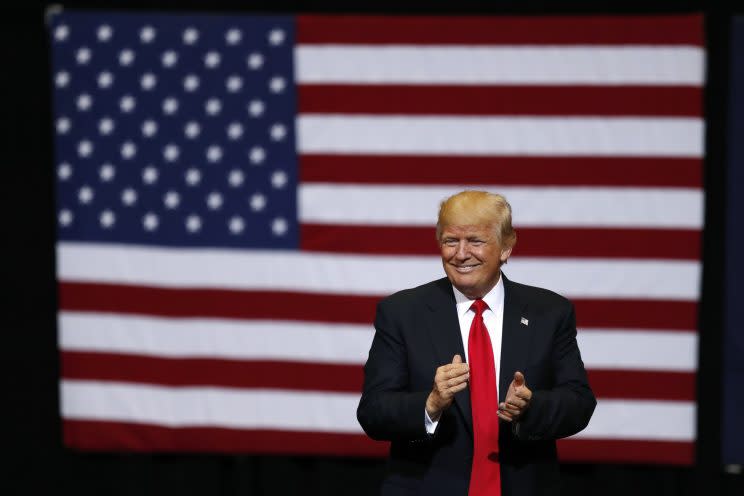Obama approved ‘cyber weapons’ in response to Russian attacks: report
In its final months, the Obama administration debated dozens of options to punish Russia for its cyber campaign to disrupt U.S. democracy, according to a new report.
The Washington Post published a deeply sourced article Friday morning on former President Barack Obama’s secret campaign to make Moscow pay for attempting to influence and discredit last year’s presidential election.
Last August, Obama received a report from the CIA that Russian President Vladimir Putin laid out specific instructions to damage or defeat then-Democratic presidential nominee Hillary Clinton and help elect Trump, according to the Post.
“He also has a personal animus toward Hillary Clinton, whom he blames for uprisings in Russia several years ago when he returned as president of Russia. There were protests — lots of protests. And he still believes that a lot of that activity was incited not just by the United States, but by Hillary Clinton,” one of the report’s authors, Greg Miller, said on the “Can he do that?” podcast.
Though Obama approved retaliatory measures in late December — sanctions and the expulsion of 35 Russian diplomats — they were modest compared to the more aggressive alternatives the White House had reportedly considered: stronger sanctions that would “crater” Russia’s economy, the release of material (gathered by the CIA) that would humiliate Putin and cyberattacks on Russian infrastructure.

In fact, according to the Washington Post report, which cites more than three dozen current and former senior U.S. government officials, Obama had authorized “planting cyber weapons in Russia’s infrastructure — the digital equivalent of bombs that could be detonated if the United States found itself in an escalating exchange with Moscow.”
“The project, which Obama approved in a covert-action finding, was still in its planning stages when Obama left office. It would be up to President Trump to decide whether to use the capability,” the report said.
President Trump seems unlikely to follow through on using these cyber weapons, considering his dismissive comments about Russian interference in the election.
By the way, if Russia was working so hard on the 2016 Election, it all took place during the Obama Admin. Why didn't they stop them?
— Donald J. Trump (@realDonaldTrump) June 22, 2017
And during the campaign, Trump embraced the WikiLeaks email disclosures that the U.S. intelligence community later said were the result of Russian hackers weaponizing information stolen from the Democratic National Committee and Clinton’s campaign chairman.
The Obama administration was largely silent throughout this time, issuing an Oct. 7 statement accusing the Kremlin of being behind the attack. But that news failed to make much of an impact, as Oct. 7 was the same day the Washington Post published the 2005 “Access Hollywood” tape in which Trump boasted about groping and forcibly kissing women.
After Trump won the election, Obama issued the round of sanctions against Russia and seized two diplomatic compounds. Despite intense deliberation — reportedly treated with secrecy tantamount to that surrounding the Osama bin Laden raid — those moderate sanctions are still the most significant public response to the Russian influence campaign.
Some administration officials regret that the White House’s response was not more forceful.

“Russia violated our sovereignty, meddling in one of our most sacred acts as a democracy — electing our president. The Kremlin should have paid a much higher price for that attack,” Michael McFaul, the former U.S. ambassador to Russia under Obama, told the Post.
On Friday morning, CNN’s Alisyn Camerota asked Kellyanne Conway, a top Trump adviser, what the White House is doing to respond to the Russian attack.
“This report is very new and we’ll discuss it with him later, but he’s been very clear on the record that he believes in any type of numbers of measure to make sure that democracy flourishes and that our voter integrity is intact,” Conway replied.
Clearly frustrated, Camerota pushed Conway several times to provide concrete examples of Trump’s actions, but her responses focused mostly on Trump’s “clear” statements that he disapproves of foreign interference.
Read more from Yahoo News:
Senate GOP health care bill looks a lot like ‘mean’ House one
In just a year, Republicans became far more skeptical of claims of racism
White House concedes Russia meddled in campaign, but denies it changed the result
Lance Armstrong opens up about his comeback — as a podcaster
Photos: ‘Die-in’ protesters dragged away from McConnell’s office


